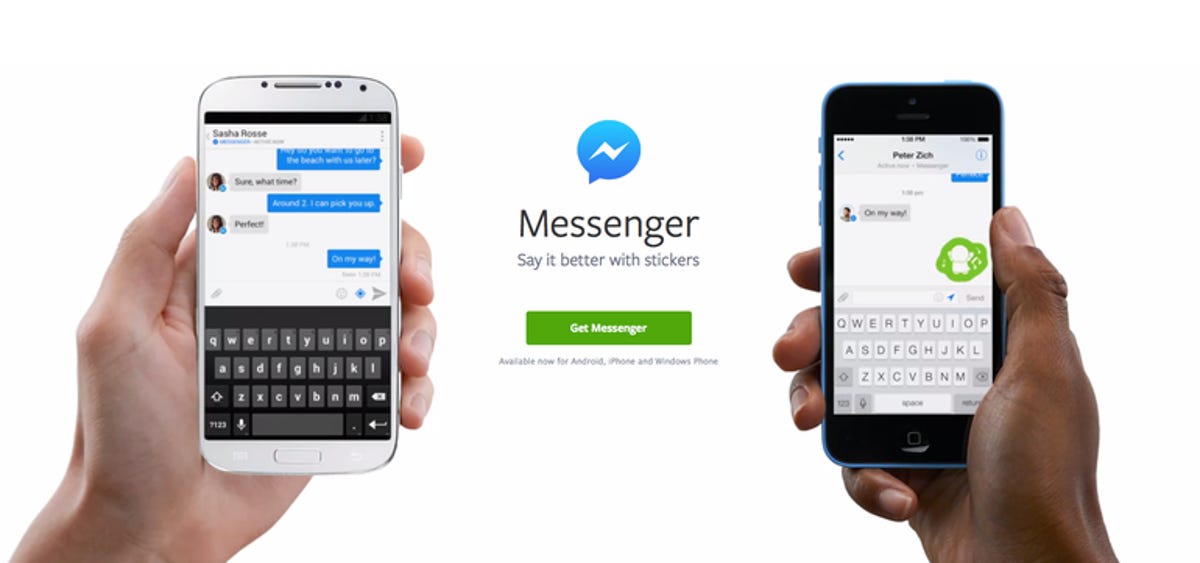
Facebook’s Messenger app, which has shifted the social network’s instant-messaging features off the main mobile app and onto its own standalone program, has found its niche — among critics.
App Annie, an analytics-tracking site that gathers the collective wisdom of app users, shows that Facebook’s Messenger app has received nearly 59,000 one-star ratings from users over the past month, dwarfing the nearly 2,700 five-star ratings the app has received from users. That said, it’s possible that not all of the reviews came from actual Facebook Messenger users. Reviews that appear on App Annie don’t require that users prove they’ve actually used the programs.
App Annie is not a destination for people to review apps. Instead, the reviews and comments are pulled from app stores, so developers, advertisers, and other stakeholders can evaluate them and decide on revenue-generation and business strategies.
Facebook announced at the end of last month that it was beginning the final phaseout of mobile messaging within its main app. The company rolled out the Messenger-only app in Europe in April, but has since rolled it out globally. In a statement to CNET last month, Facebook said that while it might seem unorthodox to break out a feature, the move is designed to “focus development efforts on making Messenger the best mobile messaging experience possible and avoid the confusion of having separate Facebook mobile messaging experiences.”
When users now try to send messages through Facebook’s standalone mobile app, they are prompted to download Messenger. Upon doing so, users will still be able to see pending messages in the Facebook main app, but when they decide to respond, they are sent to the standalone Messenger.
Not surprisingly, there has been some outcry among people who were previously accustomed to sending messages through the standard Facebook app. Facebook, however, has largely stayed out of the ongoing criticisms hitting the Web, deciding instead to focus on its data points that show using the Messenger app would make communicating with others 20 percent faster and more reliable than using the main app.
App Annie is by no means is the last word on overall Facebook user sentiment. The compiled data does not come from a traditional survey. It is compiled from people actively choosing to vote. Thus App Annie can be a lightning rod for critics. At the same time, this is a large-scale reaction to Facebook’s recent switch. Out of the more than 64,000 reviews of Facebook’s Messenger in the past month, the app has only been able to garner a 1.2-star average rating.
“I hate this app,” one user wrote on App Annie’s comments section. “Why make everything harder? Just don’t understand that.” Another user wrote: “I hate it! I delete it every day because Facebook force[s] me to download that awful app every day.”
Another reason not to lend too much credence to the App Annie findings: while the opinions of 64,000 people is nothing to ignore, Facebook has well over 1 billion users worldwide and 200 million using its Messenger app. That leaves many, many people who haven’t shared their opinions via App Annie.
Still, the comments address the fact that at least some, very vocal people don’t appreciate the transition or the new app.
“We’re focused on making Messenger the best mobile messaging experience possible and have recently added features like new ways to send photos and videos, group conversations, free voice calls, quick voice-based messages, and stickers,” a Facebook spokesperson told CNET in an e-mailed statement. “Messenger is used by more than 200 million people every month, and we’ll keep working to make it an even faster and more engaging way to connect with people.”
Update 1:01 p.m. PT to include Facebook’s statement and at 8:01 a.m. PT on August 21 to clarify App Annie’s functionality.



